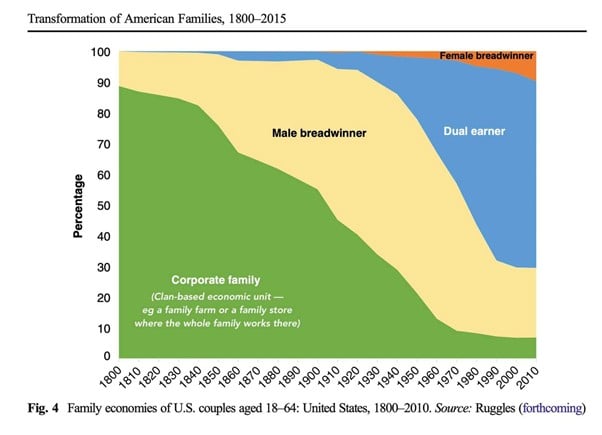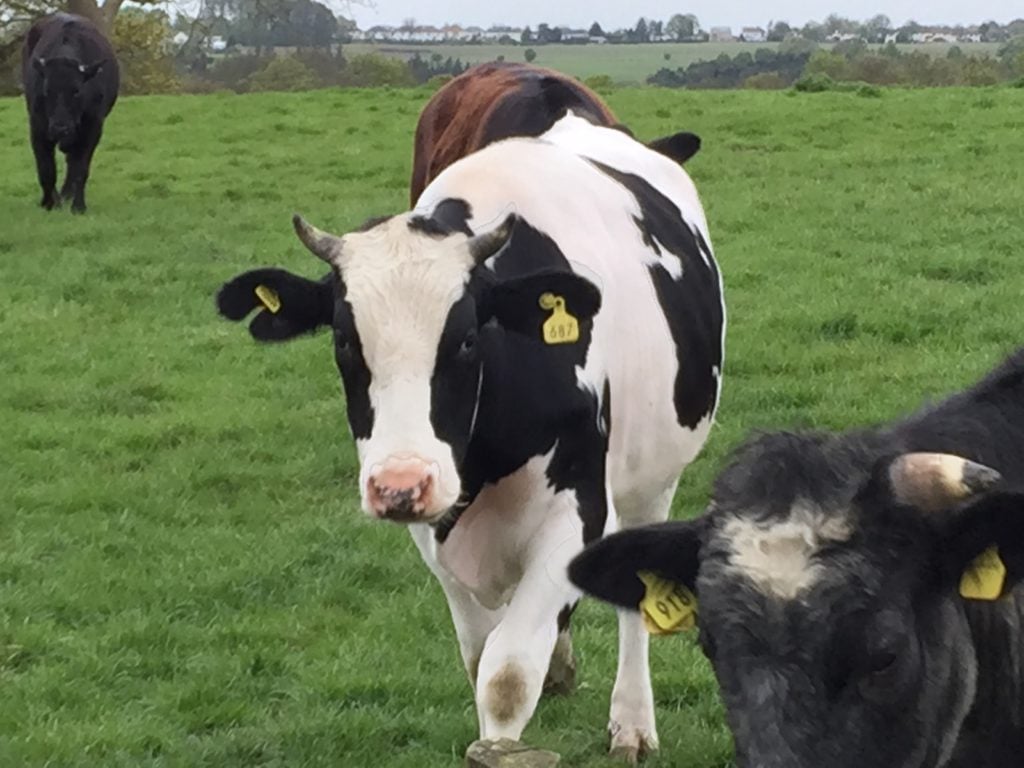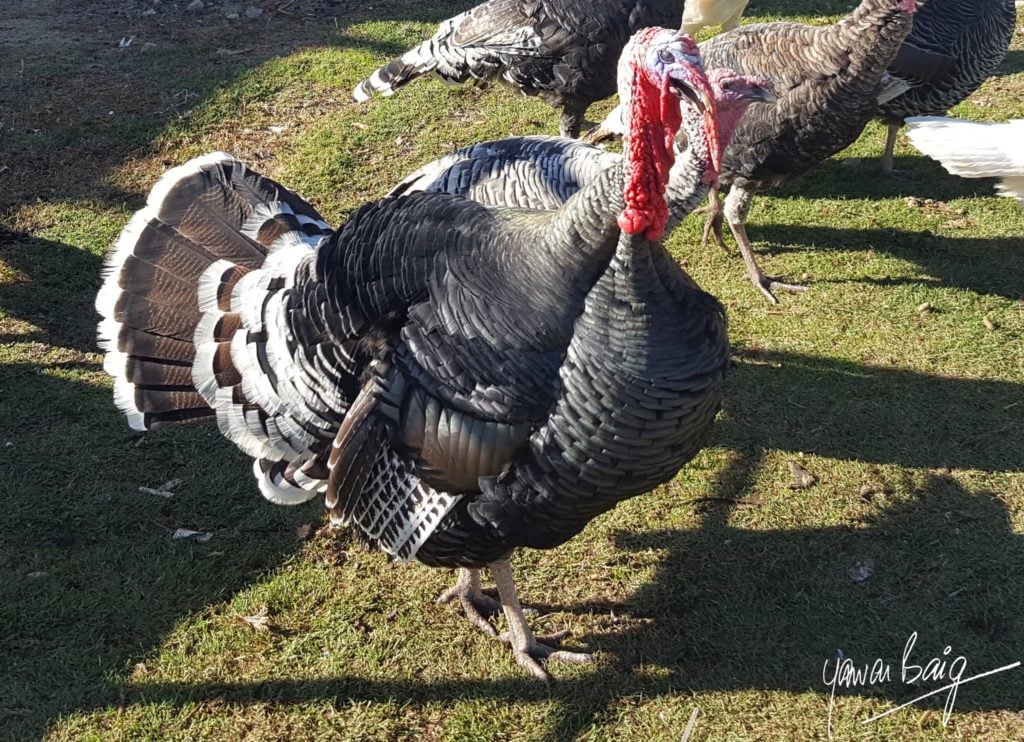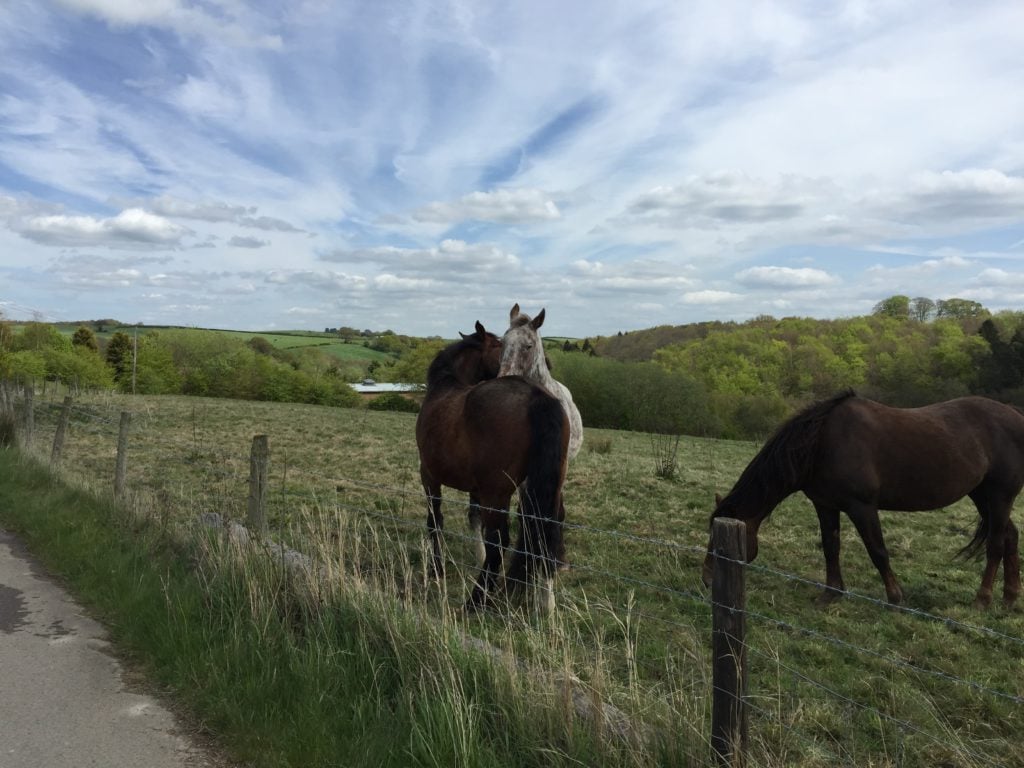Taigo Forte : @fortelabs (X)
Fascinating to see that the big change in family income over the last 200 years wasn’t the shift from male breadwinners to dual-income or female breadwinners. It was the dramatic decline of the “clan-based” economic unit, such as family farms or family-owned stores

The quote above from Twitter in interesting (to put it politely) because it glaringly shows how a change in values has changed societal demographics so significantly and perhaps even permanently. When you move from a Clan-based economic unit to a nuclear family and now to the single individual living on their own, it indicates a fundamental change in our value system from the clan being responsible for the individual to the alienation of the individual from the collective. We have several nice names for this, since we have several nice names for every negative thing in modern society from the mildest to the most horrific. To use one, we call it ‘Individualism’ or freedom of the individual to live as they want without reference to anyone else. We conveniently ignore the fact that except for the person who chooses to live completely off-grid alone, unknown, uncelebrated and to die alone, unmourned, there is no such thing as living without reference to others. Except in exceptional cases even the one who decides to live totally off-grid, is likely to have some family member or friend, worrying about him.
Whether we like it or not, we are herd animals and are responsible for the herd and the herd is responsible for us. This means that we have some duties of behaving in ways that don’t hurt others and take care of other members of the collective who need it. Our desire to be independent doesn’t absolve us of this responsibility or free us from the burden of the duties that entails. We benefit from society, and we are duty bound to return that favor. All individualism is constructive only within the boundary of benefit to the collective from which every individual has benefited before they discovered that they were individuals and decided that they didn’t need anyone else in their lives.
The problem is that this mindset – I don’t need anyone else – though it is false and unreal, produces an attitude of not caring for others. It deletes compassion and kindness from our lexicon and makes helping others a crime. That is how in the 70’s in many European countries including the UK, farmers were paid not to grow crops and to leave their fields fallow year after year so that the price of grain was not destabilized because of over production. That went on for over three decades. That means that the wealthy who have the money to buy grain at high prices can make money playing the commodity market while those who need the grain for food because they are starving are left to starve.
Joint families and family-owned businesses are what keep society together and are sources of mutual care and concern. Likewise, family farms. There are a few around here – most prominently of the Amish people. If you visit one of them – they are open to visitors – or shop at their farm stores and look around, you can see and feel the difference. My wife and I visited one in Pennsylvania. They had a model house in which we were told about the Amish way of life and shown around what we were told was a typical Amish home.
It is not in the scope of this article for me to talk about that but suffice to say that the word that came to mind was simplicity. Simplicity is possible. It is possible to live simply and gadget free, healthy and happy, even today in America. And of course, anywhere else in the world. After the house tour, we were free to wander around the farm and eventually to go to the farm store to see, sample and buy fresh non-pasteurized milk, free range (no need to say that because there are no other kind) eggs, honey, cheese, butter, corn on the cob, fresh farm made ice cream (good enough to die for), and souvenirs.

The farmhouse was across the street, without electricity or running water. But a very cleverly designed self-propelled ceiling fan. Once again, an example of how inventive and creative people can get if you take Amazon out of their lives. Convenience is truly not a worthwhile lifegoal. The price it extracts in loss of human enterprise, problem solving, the ability to concentrate, focus attention for a long time, and simply think, wonder, imagine, is far too high for the ease of clicking a link to get what you need. Only someone who worked to make something useful knows the joy of using it, improving it and eventually handing it over to others. Buying the latest gadget doesn’t even come close.
Women in long ankle length skirts and full sleeved shirts with scarf covered heads, bustled in and out of the farmhouse and other buildings, cheerfully completing different tasks. Men, young and older, in black waistcoats and straw hats went about their business with cattle and in the surrounding farmland. Walking behind plough horses, driving buggies or working in the carpentry, dairy, stables, and barns. There was a shepherd in a far field with his Border Collie herding sheep. Or rather the dog was herding the sheep while the shepherd commanded it in magical language that only the two understood. Truly it is magic in motion to see shepherds working with their dogs. I can watch that all day. Children were in the poultry enclosures, cleaning, feeding, watering, and some playing with the chickens, some Muscovy and Khaki Campbell ducks, geese, and turkeys who seemed to be friends, more than just poultry. These enclosures were large yards, fenced off to keep out foxes with a mixture of poultry and living harmoniously together. There were nesting houses to which the hens repaired when they felt the need to pay for their keep. The ducks simply did the deed on the edge of their large pond and little boys went around a few times a day with baskets and collected the eggs. Turkeys were too busy, looking either busy or just vacant while the Gobbler regularly gobbled to pretend to be in charge.

The real Ruler of the Roost was the massive Asil Game rooster whose deafening crow at dawn announced to all concerned that the new day had begun. His blood red comb was his crown, his magnificent flowing tail, his train, his wickedly hooked beak and razor sharp spurs, demanded and enforced obedience. Notwithstanding his self-important gobbling, the Gobbler knew very well who the Ruler was and kept well clear of him. The poultry enclosure was big enough for both. The farm bordered on a lake on which I could see a family of swans, with the Cob alert for any threats to his brood, mainly from Red-tailed hawks while the Pen swan shepherded her little clutch of newly hatched signets into patches of grass which promised the best feed. A scene of tranquil peace that left me wishing I lived there.

As I stood outside the store watching this beautiful scene, I noticed a young man, about 6 years old, with his own little business between the store and an adjacent barn. He was selling horseshoes. He had a little stand which was a beautifully made wooden mini wagon filled with his ware, silver painted horseshoes. He sat on a three-legged stool, also clearly handmade without a single nail in it, held together by very clever joints and wooden pegs. I walked up to him and asked, “How much for a horseshoe Sir?” He replied, “Three dollars, Mister.” I asked him, “Do you have one which is not painted?” “Yes, Sir. Give me a minute.”
He sprang up and sprinted on bare feet (that is when I noticed that almost all the children were barefooted) for the farmhouse. And back, he came a few seconds later with a horseshoe that had come off the horse not too long ago. Very satisfactorily it came with a bit of earth on it. I paid him and he said, “Thank you very much Sir.”
I noticed then that there was another young man, this one not more than perhaps four, standing by looking on. I asked the Horseshoe Business Owner, “Who is that?” “My partner,” he replied. “Is he your brother.” “Yes. When I need to go somewhere he takes care of our business.” I stood there thinking that in a society which inspired the book, ‘Anxious Generation’ by Jonathan Haidt, and the Netflix film, ‘Social Dilemma’; a time where terms like ‘helicopter parenting’ were invented to describe the paranoid behavior of parents, it is possible to live close to the earth, free from imaginary anxieties, eat chemical free clean food, and raise children who understand responsibility, caring, compassion, kindness and respect. Those who learn business at age 4 and 5 by doing it and not at age 20 by taking out loans to pay through their noses to be taught about doing business by professors who never did any business in their lives themselves. No wonder that they are shocked when they get out of Business School. Most cop out and settle to stand in the grub line with CV in hand, begging for employment. Forget business.
In this Amish world, everyone knows everyone else and is responsible for them. They know how they are related, address each other by their relationship; Uncle, Aunt, Mom, Dad, Grandad, Grandma. Even the few employees are addressed respectfully as Mister or Missus by youngsters and not by first name as is the norm in this culture. Everyone knows their place in the overall scheme of things and from the day they are born to the day they die; they never lose their relevance or purpose. They are never useless to be shunted off to a soulless place, no matter how luxurious, to be cared for by strangers. They know the meaning of ‘family’ and remain contributing members to their last day. The nature of contribution changes, ever more valuable with age. The family, the clan, the community, takes care of its own. They know it and they love it.

As they grow from infancy to childhood and youth, through maturity to old age, they know that others will look out for them, and they in turn look out for others. They are a part of a single organism, a single entity, the family, which gives them their identity, safety, and purpose. Each child is raised by the whole clan. Parents don’t live in anxiety about their children and children don’t feel neglected and abandoned, left to their own devices, or to devices they own. What a curse we have made of technology! This is another world from the cold, steel and glass apartment buildings full of people who don’t even greet each other in the lift because they have no idea who the other person is. And they don’t care.
This is in short, the triumph of the individual ego over social responsibility. Freedom at the expense of mutual care and concern. Institutions and structures were created to compensate for familial responsibilities – enter social security, old age care facilities, day care centers, hospices and so on. All functions which the family was supposed to and did provide until a generation ago. The problem is that these institutions can take care of only one aspect of the problem – the economic angle. A social security cheque can’t talk to the recipient or hold their hand. The care givers in an elderly care facility or hospice are not the inmates’ children. We forget that societal needs are not only economic. People need other people because they have emotional, intellectual, and spiritual needs that can’t be satisfied by machines and technology. I have seen enough old parents look up with hungry expectation every time the hospice or elderly facility door opens, to know that having the money to live comfortably is not the only need and may not even be the most important one. I say that after seeing elderly grandparents caring for infant and toddler grandchildren in joint families, who feel needed, loved and appreciated, which someone in an elderly care facility yearns for.
Similarly, clan-based businesses have a sense of pride and commitment in the locality. They pay local taxes, participate in local government, pay for and participate in schools, hospitals, and other infrastructure projects. They represent the town or village and have a stake in its welfare. They are a part of its history and have stories to tell, which give the community its identity. Large multinational corporations may at best pay some tax but have no interest in the local government or economy. They are interested in shareholder return only and usually don’t buy or employ locally. The business they do impacts GDP but not necessarily local prosperity. The death of clan-based or family businesses is not only an economic loss but a loss of heart and soul of the community. That means a change in culture making it more heartless, cold, calculating and trying to put a dollar value on everything from love, to caring, to respect, to warmth, to friendship. Trying to put a price on the priceless, destroys its value. Will we realize this while there is still something that can be salvaged or after it is all gone forever?
Who is the winner? Work out the ROI – the Cost : Benefit.
It all comes down to how you define progress and what you are willing to pay to get it. About a year ago I sat by the bed of an old Muslim man in the last hours of his life in the local Hospice, at 11:00 PM in winter. It was freezing cold outside with the temperature plummeting to 20 degrees below zero on the Celsius scale. The ground was covered in over a foot of snow and where it had been flattened by cars, it had frozen into black ice. Lethal for walkers and the ideal setup for hip fractures and worse. The man was sedated but could still recognize faces. I spoke to him and asked if he would like me to recite some Qur’an. He indicated with his eyes and a very slight nod of his head (he could only do that) that he would like that. And so, I did. He smiled.
But throughout the whole time, he kept looking over my shoulder towards the door, as if waiting for someone to come. I asked the nurse about this later as I was leaving and she said that he had a son who was in another part of the country but couldn’t come because he was in a high-flying job there and couldn’t take the time off. What is the value of a job where you can’t come to be with your father when he is dying? Do we even pause to think of what we are giving up for the things we consider essential to our lifestyle? That is the real cost. Not the dollar value. We must realize that the truly valuable things in our life are priceless. You can’t buy them, no matter how much money you have. That is why we must treasure them and jealously protect them and not sell them for some shiny trinket, because once lost, they can never be regained. I left the hospice past midnight. The next morning, I got a call from the hospice to say that he had passed … alone. The son came on the weekend for the funeral. I led that prayer.
We must talk about these things. I am not under any illusion that we can turn the clock back much as some of us may wish. But we need to talk about what can be done to slow down the race towards total breakdown of family and society. It is almost over here in the West. But in India and Africa, there is still a chance. If we want to give it that chance.

Much food for thought here
On point! I didn’t see where this article was going. You took us from an Amish farm to our own memories of family with your mastery in storytelling. It is truly a gift to be able to stop and smell the flowers, but another to go and plant them for another generation. We take our water and food for granted thanks to technology, and sadly even our loved ones as the idea of outsourcing care has become a growing reality. Thank you for tugging at our roots with this one. It reminded me of life lessons I took for granted… Read more »
Because the painted ones looked very artificial
If only other people thought this way. We have lost so much so quickly. I fear for the world my grandson will live in.
What you talk about just sounds serene. No deadlines, no KPIs, no rushing from one thing to another, no keeping busy for the sake of being busy. If only AI could free us up to spend more time with the clan, rather than giving more things to increase value for stockholders.
That is a great insight. AI can never give us time to spend with the clan because that is not what it is created for. It is created to give a higher return to stockholders by making you a more efficient slave. But slave you remain. The biggest lesson to learn in life is that nothing is free. The biggest insight is to be able to judge the true value of things and buy them at the right price. For example ask, ‘What is the good of being a billionaire if I can’t go to my mother when she calls… Read more »
Many essential ideas here Shaikh Yawar, with the most pertinent being the disintegration of the family unit. I get strange looks when I tell others I hope to leave the US for these places that still possess what is left of the family. The way I see it, there is a conundrum still in every family type—the together and the separate—where the dollar has not yet been put in its place. Deep down we know what is most important, but due to rising expenses and ogling eyes directed at the Western lifestyle (which, again, when you look at it what… Read more »
I think I was in grade 3 when I caught chickenpox or was it measels, I can’t remember, but was sent to live with my grandmother ( maternal), till recovery. She was a widow and lived in a haveli in Kota. Being summer, afternoons were spent indoors, and during the time I was there, she told me the entire unabridged story of the Mahabharata. I still remember most of it. There was so much support one got from the family and clan, and this was in the form of moral, physical , emotional as well as financial. Advice from elders… Read more »
This was really nicely written my friend. I appreciated the story going from family farms to individualism and productivity. It makes me wish for simpler times!